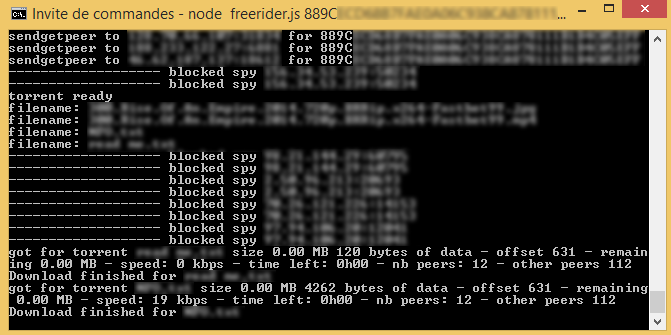Is Torrent-live’s dynamic blocklist worth the $34.40 it costs?
Blocking dangerous, privacy-invasive or unwanted IP addresses is not an entirely new concept.
Programs like PeerBlock or PeerGuardian (which PeerBlock is based on), are standalone applications that block certain IP addresses from connecting to your computer to increase your privacy when your devices are connected to peer to peer networks.
The main idea behind these applications is to block IP addresses and ranges that can be associated with certain organizations, trackers or malware so that they cannot do harm or monitor activity.
Torrent-live's dynamic blocklist is the result of the "Monitoring and blocking the bittorrent monitoring spies" study which focused on tracking and blocking monitoring stations using BitTorrent's peer and DHT system only.
The main issue with BitTorrent from a privacy perspective is that anybody can monitor peers in the network.
The researchers have created a tool to detect, follow and block spies, and one of the results of the operation is the dynamic blocklist that is updated by the project every 15 milliseconds.
The study discovered two types of spies with only one of them being dangerous from a privacy perspective.
The blocklist is being sold on the Peersm website for $34.40 which gives you one year of access to it. It is provided as a p2p file which you can either integrate directly in BitTorrent clients supporting the format or in programs like PeerBlock which run on a system-wide level.
In qBitTorrent for instance, you'd click on Tools > Options > Connection, enable IP filtering and select the p2p blocklist file on your system to integrate it in the client.
The dynamic blocklist lists more than 17800 IP addresses currently that spy on users.
The revenue is used for maintaining the service and for Torrent-live, an open source Torrent client utilizing the findings in the study.
Is it worth it?
The main question is whether integrating the blocklist is worth the money it costs. The answer depends on several factors including your current setup, your activity and whether you trust the findings of the study.
For instance, if you are using a VPN service you may not require the blocklist on top of that if the service keeps no logs of your activity.
Access to the full study is not provided on the project website which makes it impossible to find out whether the methodology used is as effective as claimed by the project.
The best course of action right now seems to be to use it as a complementing strategy instead of relying on it solely to keep you safe online.
Now You: How do you protect your privacy while online/using P2P?
This article was first seen on ComTek's "TekBits" Technology News

- Log in to post comments
